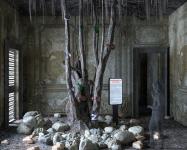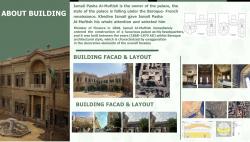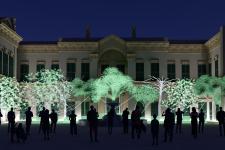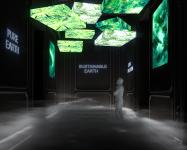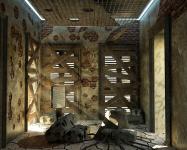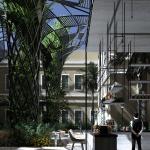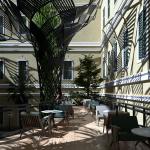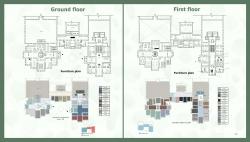It’s proved that the amount of rubbish disposed in Cairo amounted to 6.4 thousand metric tons (Statista, 2022). Pollution and excessive waste are increasing every day at Al-Sayedah Zeinab district.
According to Farrag et al., (2018), Reuse is regarded as one of the most crucial methods for historic building preservation. It aids in keeping the historic structure from deteriorating further. Adaptive reuse is the process of utilizing the existing resources by reusing old building for new purpose.
Issues: The abandoned and unutilized Ismail Pasha historical palace regardless its heritage and uniqueness and value - The excess waste and the growing pollution over Al-Sayedah Zeinab district - Lack of awareness and environmental centers that support sustainability at Al-Sayedah Zeinab district
Aims: Studying the current state of Ismail Pasha Palace and defining its architectural characteristics through the successfulness of adaptive reuse - Exploring the environmental approaches that interior designers can consider while reusing historical buildings in relation to the 4Rs - Investigating the needs and requirements of an environmental interpretation center - Formulating a design program that achieve sustainable interior spaces and support the function activities
This project is an adaptive reuse for Ismail Pasha Al Muftish Palace. Repurposing it as an environmental interpretation center; where this kind of interpretation centers are more of an educational venue that translates the language of nature into the language of human beings. The rationale for this project is the lack of awareness towards environmental pollution.
2023
The Implemented Zones:
1- Exhibition
2- Court yard including a multi-function zone (Gallery, speaker’s corner, events, and gallery)
3- Reception
The project designed and presented by: Hady ahmed abdelrazik
-Faculty of Arts & Design - Interior Department - MSA University -
Under the supervision of:
Assoc. Prof. Hoda Madkor
Assoc. Prof. Doaa Shehata
Assoc. Prof. Karam Abdullah
Prof. Dr. Khaled Hawas
Prof. Dr. Ola Hashem
Prof. Dr. Rasha Elzieny
TA. Rawan Ashraf
TA. Merihane El-Jebari

